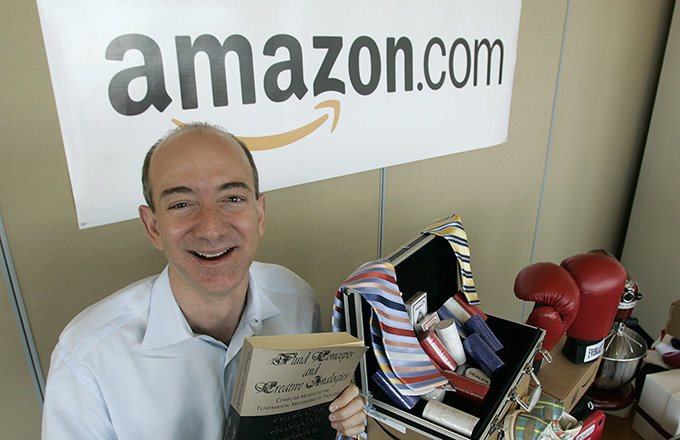
The threat that won’t go away
by Ed Reid
Listen to Audio Version:
As you be muche the worse, and I cast away
An yll wynde, that blowth no man to good, men saie.
Those lines were first recorded in 1546, in John Heywood’s A Dialogue conteinyng all the Prouerbes in the English tongue.
We’ve been saying ‘it’s an ill wind’ ever since – and there haven’t been too many winds more ill than that of 2020.
Despite that, many things have boomed in the past 12 months. The Zoom share price. Online sales of smart tops and rather more comfortable bottoms. Baking your own bread…
And crime. Specifically, cybercrime.
We all remember the old days. Greetings of the day! I give you the good shake of the hand! I am the Chief General in the Nigerian Army!
…And according to the message that followed – which usually challenged the spellchecker even more than quoting from Master Heywood – all you had to do was hand over your bank details and $30m would appear in your account the next day.
But those days are long gone. Frauds and scams are getting increasingly sophisticated and organised as fraudsters prey on the lonely and the vulnerable.
There’s been a new headline every day.
£16.6m reported in fraud in Lockdown
Romance scams boom in Lockdown
I am optimistic that the UK economy will recover quickly and strongly as the vaccine roll-out continues. A Teesside wind turbine factory will create 750 jobs. Stamping ‘Made in the UK’ on products could add £3.5bn to exports.
But cybercrime has the potential to change all that – and over the last few weeks, the situation seems to have worsened significantly. More importantly, the criminals are now specifically targeting our businesses.
Recent research revealed that more than a million small businesses would collapse if they were targeted by hackers. The poll – of more than 500 business leaders – found that a quarter of UK SMEs (that’s equivalent to 1.3m companies) would go bust if they were faced with the average cost of a cyber-attack. 16% of firms would be forced to lay off staff.
With a third of UK businesses reporting an increase in cyber-attacks, it all adds up to a terrifying picture. Right now these attacks are estimated to cost the economy £34bn a year – with the potential bill significantly higher.
There’s your economic recovery comprehensively de-railed, Rishi…
The report quoting the research called on the Government to do more – and given the scale of the current problem, the £520m ‘Help to Grow’ scheme the Chancellor announced in the Budget – which includes some digital training – looks like loose change.
All this was thrown into even sharper relief at the beginning of the month with the attack on the Microsoft Exchange e-mail system, after hackers exploited flaws in the software to gain remote access to computers around the world.
The finger was pointed at Hafnium – apparently a Chinese-sponsored hacker group – who used these flaws and left ‘web shells’ that allowed the hackers to access victims’ systems remotely.
The attack affected more than 30,000 firms in the US and hundreds of thousands of companies around the world. The EU banking regulator was hit and President Biden set up an emergency taskforce.
UK companies, of course, were told to install the latest security updates. Microsoft reacted quickly, but the damage was already done – and as with any self-respecting virus, there is always the danger of a ‘second wave.’
So what can we – as owners and directors of SMEs – do?
We’ve all argued the rights and wrongs of lockdown during the pandemic. Protection versus civil liberties. The NHS versus the economy.
But with a computer virus – with a malicious cyber-attack – there are no rights and wrongs. There are no shades of grey. To borrow Rishi Sunak’s favourite phrase, we must do whatever it takes.
Many of us are not technically literate. If you’re not, surround yourself with people who are. Many of us used to glaze over when the conversation turned to exchange servers and software. We can’t do that any more.
We need to educate ourselves, and we need to be vigilant. As the growth in romance scams and general fraud tells us, cybercrime is now a career choice in many parts of the world. The internet was hailed as something that would open up new markets across the globe for our businesses. It’s done that. Sadly, it’s also left us vulnerable to ever-more threats.
At TAB UK we’ll share whatever expertise and best practice we have. I know all our members will do the same. But we’re right back to the old SWOT analysis. And there’s now one item that will always be in the final column…
A housekeeping note to end with. The next blog on my fortnightly schedule would be due on April 2nd. As many of you will know, that’s Good Friday – so I’ll push it back a week to April 9th, by which time we’ll only be three days away from hairdressers and barbers re-opening. Whoop! And judging by some recent Zoom calls, there may be a few people I know camping on the pavements, waiting for the doors to open…
Related articles

Your business health masterclass
Ed Reid talks about how TAB Boards can be seen as business health masterclasses and how they help business owners.

Prevention is better than cure
Ed Reid, managing director of TAB (UK) talks about preventing issues in your business is better than finding a cure once they happen.

The biggest river in the world
Ed Reid, our Managing Director talks about how Jeff Bezos took Amazon from a modest business to the world's largest online retailer.





